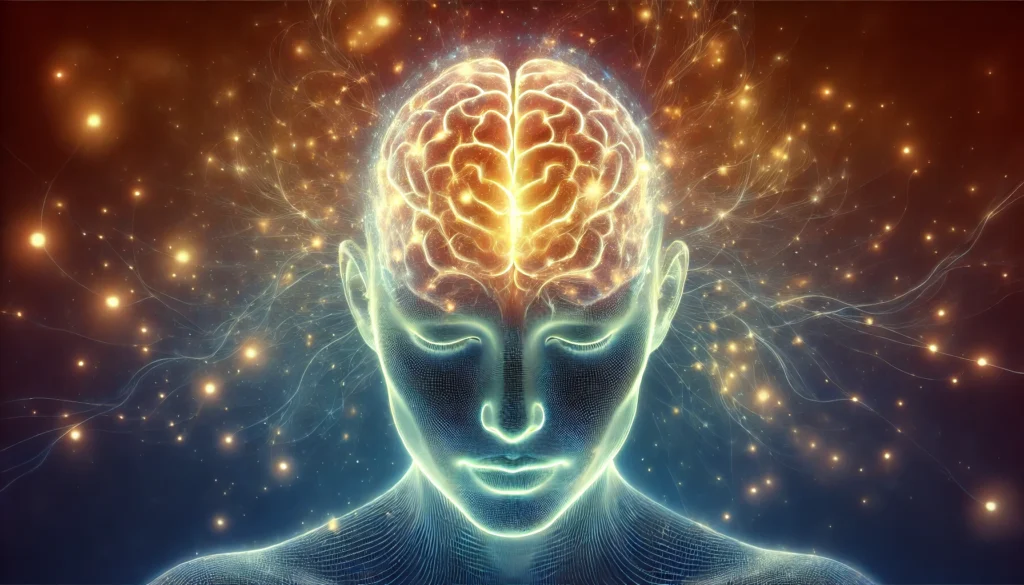In today’s fast-paced world, the demands on our cognitive and physical resources are relentless. As the lines blur between work, leisure, and rest, a compelling question emerges: Does resting without sleeping help? For those juggling busy schedules, managing chronic stress, or navigating sleepless nights, understanding how rest can complement sleep is critical. While sleep remains indispensable for physical and mental restoration, rest—in its many forms—offers an underutilized avenue for recovery, focus, and resilience. This article explores the nuanced relationship between rest and sleep, examining whether intentional rest practices can unlock benefits for those seeking peak performance and well-being.
You May Also Like: Why Do We Sleep? Exploring the Importance of Rest for Optimal Focus and Performance
Resting vs. Sleeping: Clarifying the Distinction
To evaluate whether resting without sleeping is beneficial, it’s essential to distinguish between the two. Sleep is a complex physiological process consisting of multiple stages, including rapid eye movement (REM) and non-REM sleep. During sleep, the brain cycles through these stages to support memory consolidation, cellular repair, and emotional regulation.
In contrast, resting involves periods of reduced physical and mental activity without the deep physiological processes characteristic of sleep. Resting can take various forms, such as lying down with closed eyes, practicing mindfulness, or engaging in meditative states. Unlike sleep, rest typically lacks the structured stages needed for complete cognitive and physical restoration.
The Science Behind Rest: Is Resting Without Sleeping Beneficial?
Resting without sleeping engages the parasympathetic nervous system, commonly known as the “rest-and-digest” system. This system slows the heart rate, reduces stress hormone levels, and facilitates relaxation. While rest does not entirely replicate the benefits of sleep, it still provides measurable advantages, particularly for mental clarity and stress relief.
Neural Replenishment During Rest
Although rest does not involve the deep neural cleansing processes observed during sleep, such as the glymphatic system’s removal of toxins, it allows the brain to downregulate from high activity levels. Studies suggest that even brief periods of rest can improve focus and memory retention. For instance, closing your eyes and entering a relaxed state may activate default mode networks (DMN) in the brain, which are associated with creativity and problem-solving.
Does Resting Count as Sleep?
One common question is whether resting can serve as a substitute for sleep. The short answer is no—resting does not count as sleep because it lacks the physiological depth required for comprehensive restoration. Sleep is indispensable for tasks such as synaptic pruning, hormonal regulation, and muscle repair. However, rest can act as a supplementary strategy, particularly when sleep is unattainable.

Practical Applications of Rest for Focus and Recovery
In scenarios where sleep is not immediately possible, resting without sleeping can provide temporary relief and boost performance. Understanding how to rest effectively is crucial for maximizing its benefits.
Resting Your Eyes: A Gateway to Mental Clarity
Does resting your eyes count as sleep? While resting your eyes is not a replacement for sleep, it can offer significant cognitive benefits. Closing your eyes minimizes sensory input, reducing the brain’s workload and allowing it to recharge. Research has shown that brief periods of eye rest can improve concentration and reduce fatigue, making it an effective strategy for combating midday slumps.
Mindfulness and Meditation
Mindfulness practices and meditation are forms of active rest that engage the parasympathetic nervous system. These practices have been linked to lower cortisol levels, improved focus, and enhanced emotional regulation. Unlike passive rest, mindfulness actively reshapes neural pathways, promoting resilience and reducing the long-term impact of stress.
Does Resting Without Sleeping Help Recovery?
For athletes and individuals recovering from physical exertion, rest can aid in muscle recovery and reduce the risk of overtraining. While sleep remains the gold standard for physical recovery, rest—particularly in the form of stretching or light activities—can enhance circulation and alleviate soreness.
The Role of Rest in Sleep Optimization
Is resting without sleeping beneficial for improving sleep quality? The answer lies in its ability to reduce stress and prepare the body for sleep. Engaging in restful activities such as reading, meditating, or listening to calming music before bedtime can ease the transition into sleep. This practice, often referred to as sleep hygiene, is crucial for individuals struggling with insomnia or irregular sleep patterns.
Can Your Body Get Rest Without Sleeping?
While the body can achieve partial relaxation without sleep, it cannot fully repair or rejuvenate itself without entering the deeper stages of sleep. Nevertheless, rest plays a complementary role by alleviating stress and preparing the body for eventual sleep. For example, progressive muscle relaxation techniques can reduce tension and promote a state of readiness for restorative sleep.
Rest as a Cognitive Enhancer
The connection between rest and cognitive performance is particularly relevant in high-stakes environments where focus and decision-making are critical. Studies indicate that short periods of rest—even micro-rests lasting 10 to 15 minutes—can improve attention spans and mitigate the effects of mental fatigue. This phenomenon is often referred to as the “power of pause.”
Does Resting Your Eyes Count as Sleep for Mental Recovery?
While resting your eyes cannot replace the deeper restorative functions of sleep, it provides a temporary cognitive boost. By reducing external stimulation, resting the eyes can help reset attention and improve performance on demanding tasks.
Strategies for Effective Rest
To maximize the benefits of resting without sleeping, consider the following evidence-based strategies:
- Scheduled Breaks: Incorporate short breaks into your daily routine to prevent burnout and maintain focus.
- Relaxation Techniques: Practice diaphragmatic breathing or progressive muscle relaxation to activate the parasympathetic nervous system.
- Mindfulness Practices: Engage in meditation or guided imagery to enhance mental clarity and emotional regulation.
- Comfortable Environment: Create a quiet and comfortable space for rest to minimize distractions.
The Complementary Roles of Rest and Sleep: A Balanced Approach
Rest and sleep, though distinct, are equally vital components of a holistic approach to health and productivity. While sleep provides the foundation for deep physical and cognitive restoration, rest offers supplementary benefits that enhance resilience, focus, and recovery. By integrating intentional rest practices into daily routines, individuals can unlock a range of benefits, from improved mental clarity to enhanced physical recovery.

Conclusion: Harnessing Rest as a Tool for Optimal Living
In a society that often prioritizes productivity over well-being, rest emerges as a powerful tool for balancing both. Does resting without sleeping help? The answer is unequivocally yes, when viewed as a complement rather than a substitute for sleep. Resting—whether through mindfulness, brief pauses, or simply closing one’s eyes—serves as a bridge to better performance and greater resilience.
For those grappling with the challenges of sleepless nights or demanding schedules, incorporating rest into daily life can pave the way for sustainable success. By embracing the interplay between rest and sleep, we can achieve not only enhanced focus and recovery but also a deeper sense of well-being. Rest is not merely an interlude; it is an essential rhythm in the symphony of human productivity and health.
Further Reading:
Time: Is Bed Rotting Bad for You?
The Atlantic: Best of How To: Rest
Sleep: Is Lying in Bed With Your Eyes Closed Actually Restful?
Dr. Ghosheh: Is Resting Your Eyes as Beneficial as Sleeping?
Self: No, You Can’t Just ‘Bank’ All Your Rest During Vacations and Breaks
Important Note: The information contained in this article is for general informational purposes only, and should not be construed as health or medical advice, nor is it intended to diagnose, prevent, treat, or cure any disease or health condition. Before embarking on any diet, fitness regimen, or program of nutritional supplementation, it is advisable to consult your healthcare professional in order to determine its safety and probable efficacy in terms of your individual state of health.
Regarding Nutritional Supplements Or Other Non-Prescription Health Products: If any nutritional supplements or other non-prescription health products are mentioned in the foregoing article, any claims or statements made about them have not been evaluated by the U.S. Food and Drug Administration, and such nutritional supplements or other health products are not intended to diagnose, treat, cure, or prevent any disease.


